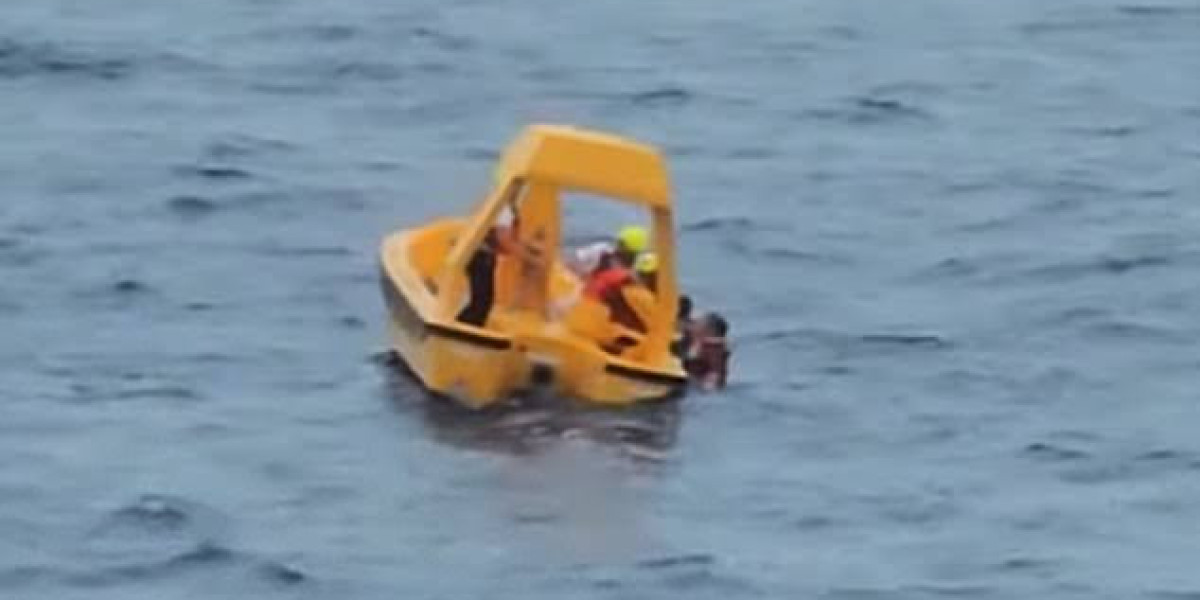Sajid Javid is a prominent British politician who has made significant contributions to the political landscape of the United Kingdom. Known for his remarkable career in public service, Javid has held several high-profile positions, including Secretary of State for Health and Social Care, Home Secretary, and Chancellor of the Exchequer. But who is Sajid Javid, and what is his story?
Early Life And Education
Sajid Javid was born on 5 December 1969 in Rochdale, Lancashire, to a British Pakistani family. His father, Abdul, was a bus driver who had immigrated from Pakistan in 1961 with only £1 in his pocket. His mother, Zubaida, was a seamstress who joined her husband in Britain a few years later.
Javid grew up in a modest two-bedroom flat above a shop, sharing a room with his four brothers. He attended Downend School, a state comprehensive in Bristol, where he developed an interest in politics and economics. He was inspired by Margaret Thatcher, whom he saw as a role model for breaking barriers and achieving success.
Javid excelled academically and won a place at the University of Exeter, where he studied Economics and Politics. He was the first person in his family to go to university, and he worked part-time at a local bank to support himself. He also joined the Conservative Party, becoming the chairman of the Exeter University Conservative Association. He graduated in 1991 with a first-class honours degree.
Career In Banking And Business
After graduating, Javid pursued a career in banking, joining Chase Manhattan Bank in London as a graduate trainee. He quickly rose through the ranks, becoming the youngest vice-president in the history of the bank at the age of 25. He later moved to Singapore, where he headed the bank’s emerging markets division. I
n 2000, he joined Deutsche Bank, one of the largest financial institutions in the world, as a director in its global markets business. He was promoted to managing director in 2004, and became the head of global credit trading and emerging markets in 2007.
He was responsible for a team of 500 people and a budget of $15 billion. He earned a reputation as a skilled and successful banker, earning millions of pounds in bonuses and being dubbed “The Saj” by his colleagues.
Javid also had a keen interest in business and entrepreneurship, investing in various ventures and serving on the boards of several companies. He was a non-executive director of the Social Mobility Foundation, a charity that aims to improve the prospects of young people from disadvantaged backgrounds. He was also a trustee of the London Early Years Foundation, a social enterprise that provides childcare and education to low-income families.
Entry Into Politics And Rise To Power
Javid had always harboured a passion for politics, and decided to pursue his dream of becoming a Member of Parliament in 2009. He applied for the Conservative Party’s parliamentary candidates list, and was selected as the candidate for Bromsgrove, a safe Tory seat in Worcestershire.
He won the seat in the 2010 general election with a majority of 11,308 votes, becoming one of the first British Asian MPs in the House of Commons. He was appointed as a member of the Work and Pensions Select Committee, where he scrutinised the government’s policies on welfare and pensions.
Javid’s talent and ambition did not go unnoticed by the party leadership, and he was soon promoted to various junior ministerial roles. He served as the Economic Secretary to the Treasury from 2012 to 2013, and as the Financial Secretary to the Treasury from 2013 to 2014. He was then appointed as the Secretary of State for Culture, Media and Sport in 2014, following the resignation of Maria Miller.
He was also given the additional role of Minister for Equalities, making him the first British Asian cabinet minister in history. He oversaw the implementation of the Leveson Inquiry recommendations on press regulation, the expansion of broadband and mobile coverage, and the promotion of the UK’s creative industries.
In 2015, following the Conservative Party’s victory in the general election, Javid was promoted to the Secretary of State for Business, Innovation and Skills, and also became the President of the Board of Trade. He was responsible for overseeing the UK’s industrial strategy, trade policy, and science and innovation agenda. He also dealt with the challenges posed by the Brexit referendum, the steel crisis, and the Volkswagen emissions scandal.
In 2016, after Theresa May became the Prime Minister, Javid was moved to the Secretary of State for Housing, Communities and Local Government, where he had to tackle the issues of housing affordability, homelessness, and local government funding. He also played a key role in the government’s response to the Grenfell Tower fire, which claimed the lives of 72 people in 2017.
In 2018, Javid became the Home Secretary, following the resignation of Amber Rudd over the Windrush scandal. He was the first person from an ethnic minority background to hold one of the four great offices of state in the UK. He had to deal with the complex and controversial matters of immigration, security, and policing.
He also faced the threats of terrorism, cybercrime, and organised crime. He introduced new measures to combat knife crime, child sexual exploitation, and domestic abuse. He also revoked the citizenship of Shamima Begum, a British-born woman who joined the Islamic State group in Syria.
In 2019, after Boris Johnson became the Prime Minister, Javid was appointed as the Chancellor of the Exchequer, the second most powerful position in the government. He was in charge of the UK’s economy, public finances, and taxation. He had to prepare the UK for its departure from the European Union, and also cope with the impact of the COVID-19 pandemic.
He delivered his first and only budget in March 2020, announcing a £30 billion package to support the economy and the health service. However, he resigned from his post in February 2020, after a dispute with Johnson over the role and autonomy of his advisers.
In 2021, Javid returned to the cabinet as the Secretary of State for Health and Social Care, replacing Matt Hancock, who resigned after breaching COVID-19 guidelines. Javid inherited the responsibility of leading the UK’s response to the pandemic, which had claimed over 150,000 lives and caused severe social and economic disruption.
He also had to oversee the NHS, social care, and public health. He advocated for easing the lockdown restrictions and reopening the economy, while also ensuring the safety and wellbeing of the population. He also contracted and recovered from COVID-19 himself in July 2021. He resigned from his post in July 2022, after a disagreement with Johnson over the government’s strategy to deal with the pandemic.
Personal Life And Interests
Javid is married to Laura King, a former managing director at Deutsche Bank, whom he met while working in New York. They have four children, three daughters and a son. They live in Fulham, London, and also own properties in Bristol and Chelsea. Javid is a practising Muslim, but does not consider himself to be very religious. He has said that he respects all faiths and believes in religious freedom.
Javid is a fan of Star Trek, and has a collection of memorabilia from the sci-fi franchise. He has also named his pet dog Spock, after the iconic character. He enjoys watching movies, reading books, and listening to music. He is a supporter of Manchester United Football Club, and also follows cricket and boxing. He is a patron of several charities and organisations, including the Holocaust Educational Trust, the Patchwork Foundation, and the British Asian Trust.
What Are Some Of Sajid Javid's Achievements?
Sajid Javid is a British politician who has achieved many milestones in his career. Some of his notable achievements are:
He became the first British Asian to hold one of the four great offices of state in the UK, serving as Home Secretary and Chancellor of the Exchequer.
He was knighted in the 2024 New Year Honours for his public service and contribution to politics.
He was a successful banker and businessman, becoming the youngest vice-president at Chase Manhattan Bank and a managing director at Deutsche Bank.
He was the first person in his family to go to university, graduating with a first-class honours degree in Economics and Politics from the University of Exeter.
He played a key role in the government’s response to the COVID-19 pandemic, delivering a £30 billion budget to support the economy and the health service in 2020, and leading the UK’s vaccination programme in 2021.
Controversy And Activism Of Sajid Javid
Sajid Javid is a British politician who has been involved in some controversy and activism during his career. Some examples are:
He admitted that he held non-dom status for six years while working as a banker, allowing him to legally avoid tax on overseas earnings. He also had wealth in an offshore trust until he became a minister in 2012.
He resigned as chancellor in 2020 after clashing with Dominic Cummings, the former chief adviser to Boris Johnson, over the role and autonomy of his advisers.
He was criticised for revoking the citizenship of Shamima Begum, a British-born woman who joined the Islamic State group in Syria, without due process or regard for her human rights.
He faced backlash for introducing a new law that would criminalise British citizens who enter or remain in parts of Syria controlled by rebel groups, such as those who fought against Isis.
Conclusion
Sajid Javid is a remarkable politician who has risen from humble beginnings to become one of the most influential figures in the UK. He has demonstrated his skills, abilities, and values in various fields and roles, and has made a positive difference to the country and the society.
He is an inspiration to many people, especially those from ethnic minority and disadvantaged backgrounds, who aspire to achieve their dreams and goals. He is a true example of the British spirit of resilience, diversity, and excellence.










